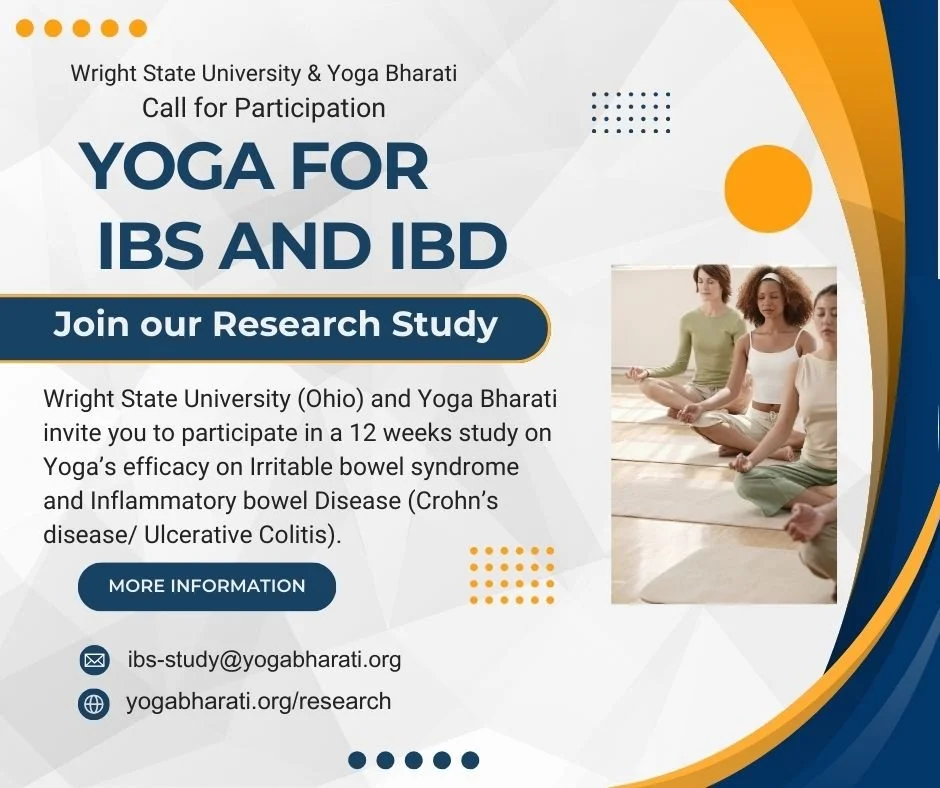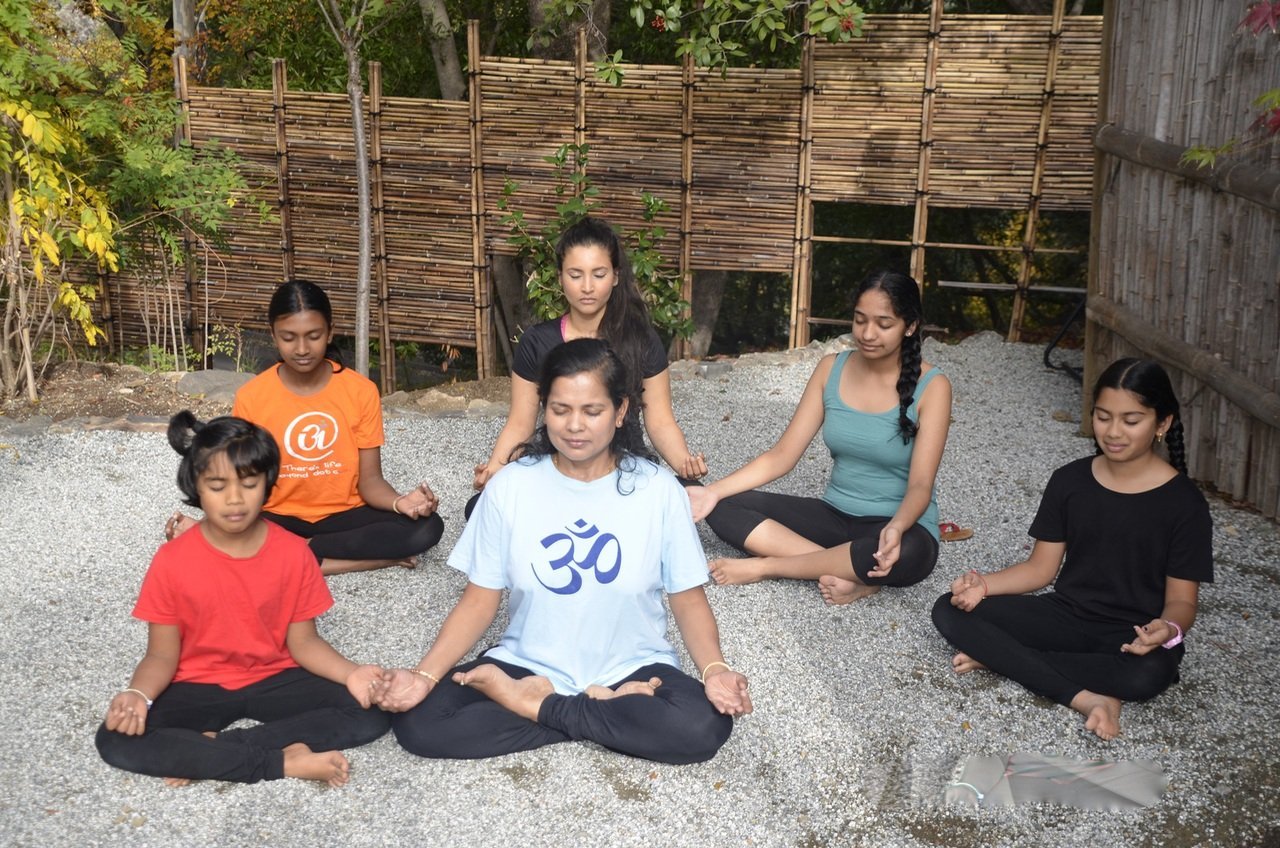
Anveshana - Yoga Research
Invention with Innovation
Yoga Intervention for IBS and IBD - Call for Study Participation
(in collaboration with Wright State University, Ohio)
Wright State University (Ohio) and Yoga Bharati invite you to participate in a 12 weeks study on Yoga’s efficacy on Irritable bowel syndrome (IBS) and Inflammatory bowel Disease (Crohn’s disease/ Ulcerative Colitis).
If you are a person suffering from IBS or IBD and would like to try yoga as adjunctive therapy, please email: ibs-study@yogabharati.org to find out if you are eligible for the study.
Yoga Research Projects
A study on the efficacy of Yoga for Children with ADHD
(This study is approved by the MIT Institutional Review Board (IRB Protocol 2110000497) and complies with regulatory guidelines)
Contact us at research@yogabharati.org
Opening Enrollment soon (TBD)
Children will receive compensation at different steps of the study. Details will follow soon.
“After all, the ultimate goal of all research is not objectivity, but Truth”
Our Earlier Published Research Papers
Yoga Bharati has completed Phase I of the study of the Effect of Yoga on Children with ADHD and this study is accepted for a poster presentation by International Association of Yoga Therapists to present at Symposium of Yoga Research (SYR-2024) on October 14–16th 2024 at Kripalu Center for Yoga & Health.
Mind Sound Resonance Technique - Paper Abstract
In collaboration with the University of California, Santa Barbara
For the full paper, click here.
Cross-cultural study on the Effects of an Online-Administered Chanting-Based Meditation Technique (MSRT) on Anxiety, Stress, Sleep, and Mindfulness
Authors: Chinmay Surpur-1, Elliott Ihm-1, Dr. Jonathan Schooler-2, Dr. H. R. Nagarathna-3, Dr. Judu Ilavarasu-4
Institutions: Yoga Bharati-1; University of California, Santa Barbara-1; SVYASA University-2
Key words: Yoga, Meditation, Chanting, Sleep, Stress, Mindfulness
Objective: The purpose of this randomized pilot study was to understand the effects of a 10-day online intervention of a chanting-based relaxation technique called Mind Sound Resonance Technique (MSRT) on measures of anxiety, stress, sleep, and mindfulness.
Methods: Two-hundred and ten participants were recruited for this pilot study: fifty participants from India and one-hundred and sixty participants from the United States. Participants were initially administered a series of questionnaires to assess measures of state anxiety, stress, quality of sleep, and mindfulness. Each day, participants received a video of MSRT at 9 AM local time. Upon completion of the 10-day intervention, participants were administered the same series of questionnaires.
Results: Sixty-five participants completed all portions of the study and were compensated. Upon applying exclusion criteria, the data of 47 participants’ (10 male and 37 female) was used for statistical analysis. The mean age of participants was 43.07 years old. Initial results showed no statistically significant difference in any of the questionnaires. However, within the Karolinska Sleep Questionnaire, four specific questions showed statistically significant improvements:
1. Difficulties falling asleep (M = 2.089, SD = 1.42; t(44) = 3.0, p = 0.004).
2. Insufficient amount of sleep (M = 2.178, SD = 0.1.29; t(44) = 2.0, p = 0.05)
3. Feeling exhausted when waking up (M = 1.689, SD = 1.39; t(44) = 2.8, p = 0.008)
4. Sleepiness during work (M = 1.33, SD = 1.10; t(44) = 2.8, p = 0.008)
Although the results did not show statistical significance, 75% of the testimonials written by the participants indicated that MSRT is a relaxing experience.
Testimonials were the best part of this study:
Conclusion: While none of the results showed statistically significant improvements in mindfulness, anxiety, and stress, there was a statistically significant improvement in some sleep-related questions. In addition, the testimonials were emphatically positive, showing that this study needs to be revised and revisited. Conducting online research in the field of yoga is a fairly new area of study, and the effort of this experiment was to design a robust pilot study in order to construct concrete future research. There is promise in potential future online research to study the effects of MSRT on various aspects of sleep alone, rather than including anxiety, stress, and mindfulness, in order to create a more pointed study on the effects of Mind Sound Resonance Technique on various aspects of sleep.
For Questions, contact research@yogabharati.org






